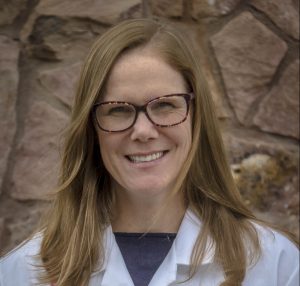
07 Mar Telluride Med Center: Limiting Visits as of 3/9! Alternate Site for Primary Care?
In an effort to protect patients, the community and staff from exposure to coronavirus (COVID-19), and in accordance with Colorado Rural Health Center recommendations, effective Monday, March 9, the Telluride Regional Medical Center will institute new protocols, including limiting non-essential visits.
For more from the Med Center on the COVID-19 challenge, go here.
And read this story about travel in this context.

Dr. Sharon Grundy
Leaders at the Telluride Medical Center are considering an alternative site for non-respiratory primary care visits, though no other details have been announced.
These are proactive measures assures Dr. Sharon Grundy, director of the clinic’s primary care. “We won’t be waiting for the first case of coronavirus in our clinic to take the steps necessary to minimize the spread of this viral disease.”
For healthy patients needing non-essential visits, like wellness exams, well-child checks, physicals, etc., medical center staff will lean heavily on telephone consultations, telehealth visits — which can be held over smartphones or computers, and postponing appointments to a later date.
The first phase of this plan was activated over the weekend as staff from the clinic worked to contact patients with appointments to reschedule or make those alternative plans for consultations.
For patients requiring in-person visits with their healthcare provider, an abundance of expanded and precautionary guidelines will be observed.
Dr. Diana Koelliker, director of the emergency department stresses, “Our priority is to be sure we are seeing the patients that need to be seen. We do not want to miss any serious health conditions like heart attack, stroke, pneumonia, etc. that may or may not be associated with coronavirus.”
Staff has already begun training and finalizing protocols for handling patients with respiratory complaints.
“We’re looking at a plan that allows patients to wait in their cars — rather than in the lobby, as well as how and when to accommodate home visits, telehealth visits and phone consultations,” said Dr. Grundy.
The message to all patients and guests to the region: Please avoid non-emergency walk-ins to the medical center by calling ahead to be assessed.
“We’re counting on everyone in the community, especially hotel managers, school administrations, day care managers and our patients to help get this message out and decrease our non-essential patient traffic,” said Dr. Grundy.
Patients with any respiratory symptoms will be required to wear a medical mask while at the medical center and will be isolated from other patients at the clinic who do not have respiratory symptoms.
Medical staff with close contact with patients showing respiratory symptoms will wear, as a matter of precaution, personal protective equipment (PPE), and all patients with the complaint of fever, cough, or shortness of breath, will be approached as a potential coronavirus case.

Dr Diana Koelliker
“At this point a patient matching that description would be more likely to test positive for influenza, nevertheless, we’re initiating these elevated protocols out of an abundance of caution and prevention,” said Dr. Koelliker. “If members of our team are quarantined for 14 days for having made contact with a patient who later tested positive for coronavirus, our ability to continue to care for the community would be compromised.”
Wearing PPE during contact with patients displaying symptoms consistent with coronavirus prevents that scenario.
“Our top priority is to keep the community healthy and ensure our staff remain healthy and available to serve the community,” said Dr. Koelliker.
The best advice is still for the public to use common sense hygiene practices: Give people who are coughing space, wash your hands often, don’t touch your face, and if you or your family members are sick, stay home.
“These are the best strategies to help contain the spread of the virus,” said Dr. Koelliker.
Three resources Dr. Grundy and Dr. Koelliker also recommend are the CDC’s recommendations to Get Your Household Ready for Coronavirus Disease 2019 (COVID-19); the CDC’s Prevention & Treatment guidelines; and an older Home Care Guide the CDC released during a previous pandemic flu season.


Sorry, the comment form is closed at this time.